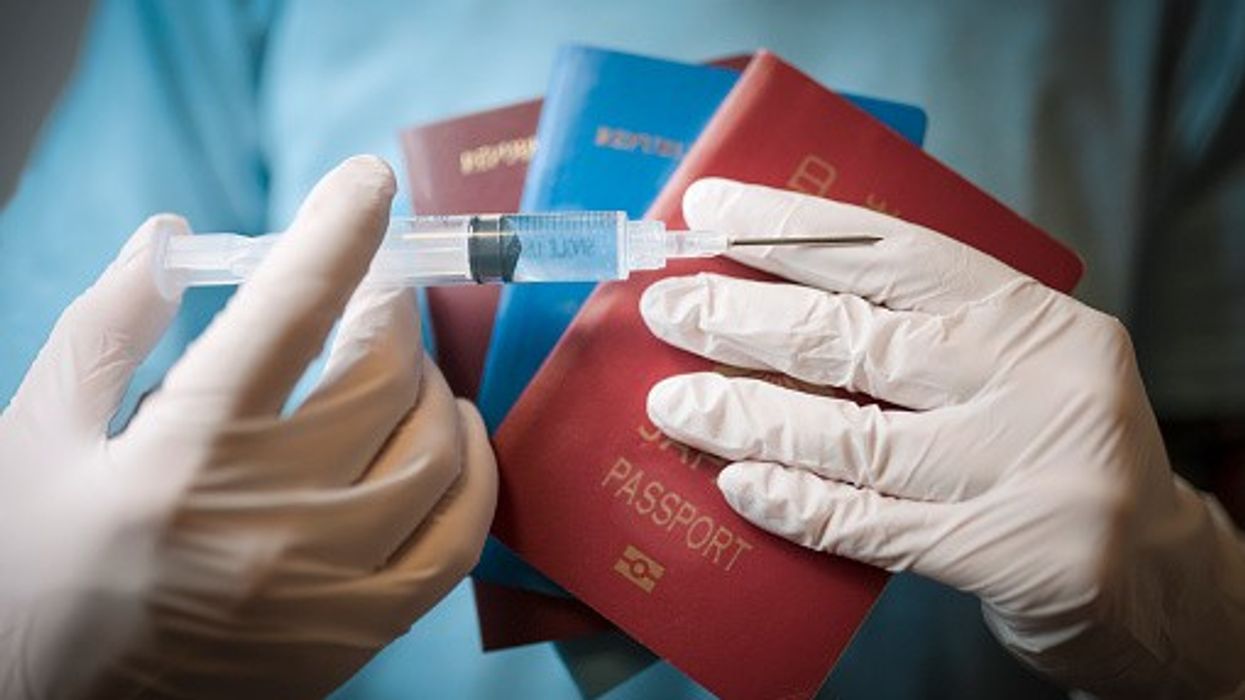There are an estimated 42 million trips abroad each year where the traveller does not seek travel health advice. An increasing number of pharmacies are setting up travel clinics to help change this trend.
With waiting times for GP appointments in England now widely reported as being over 3 weeks, and GP practices only offering a limited number of travel vaccinations on the NHS (example: hepatitis A, typhoid and cholera), pharmacy travel clinic services provide patients with a convenient alternative to their GP practice, where they can often walk in to their local pharmacy with no prior appointment, including during evenings and weekends, to receive the full protection they need prior to their trips abroad.
It is therefore not surprising that community pharmacies have become the UK’s leading provider of travel clinic services since first launching them 15 years ago – vaccinating and protecting millions of travellers each year.
The majority of travel vaccines (and malaria tablets) are not provided to patients free on the NHS, meaning pharmacies offering a comprehensive travel clinic service are providing their patients with a significant unmet health need. Travel vaccinations available privately in pharmacies include:
- Cholera
- DTP
- Dengue fever
- Hepatitis A
- Hepatitis B
- Japanese encephalitis
- Meningitis ACWY
- Meningitis B
- MMR
- Rabies
- Tick-borne encephalitis
- Typhoid
- Yellow fever
Many other travel-related prescription only medicines (POMs) are also readily available privately in pharmacy to keep patients safe on their trip abroad, including treatments for altitude sickness, jet lag, period delay and traveller’s diarrhoea. Non-POM travel health related products such as mosquito repellents and nets, water purifier bottles and first aid kits are also readily available in pharmacies offering travel clinic services.

The challenges
It is understandable that pharmacists, pharmacy technicians and other allied healthcare professionals can find travel health an extremely complicated area, with so many variables contributing to the recommendations regarding vaccines and malaria prophylaxis. To deliver a reliable and clinically robust travel health service they need to consider:
Different types of travellers with individual risks
- destination - countries and regions
- age of traveller(s)
- duration of trip
- purpose of travel
- accommodation
- itineraries and planned activities
- medical requirements / medication
Hundreds of destination countries requiring vaccination
- multiple in-country regional variations
- recommendations can change depending on the season
- requirements change in response to local disease outbreaks
13 vaccine preventable diseases plus malaria
- 30+ vaccines and malaria prophylaxis options
- 50+ different vaccination schedules
- thousands of excipients, contraindications and potential drug interactions
If running a pharmacy travel clinic service using unsupported PGDs only, or as an independent prescriber, pharmacists (and pharmacy technicians) need to find the time and resources to adequately research these variations during every travel health service consultation. However, if properly supported by using a dynamic travel clinic online consultation platform with integrated PGDs (such as the Pharmadoctor Travel Clinic eTool), it is simple and quick for pharmacies to implement and provides a valuable, clinically robust service to the local community which is professionally and financially rewarding for pharmacists.
The business potential
Analysis of Pharmadoctor’s partner pharmacies’ travel clinic consultation data, the UK’s largest and only nationwide network of private travel clinics across the UK, is demonstrating that some of its partner pharmacies offering its travel clinic service are now generating over £550,000 new business per year from offering the service. Analysis of Pharmadoctor’s consultation data is also showing that patient demand for pharmacy travel clinic services since Covid is growing at an impressive 43% year-on-year; with January 2025 being yet another record month:
Key recommendations to make your pharmacy travel clinic service a success:
Ensure your pharmacy’s details are correct on the Pharmadoctor patient website so that they can send you patient appointment bookings (free with the Pharmadoctor Travel Clinic Service Package).
Set up an SEO optimised travel clinic website (linked to your existing pharmacy website) focused on your travel clinic service – including writing and publishing weekly blogs relating to your travel clinic service. Here’s some examples
Creating Facebook and Instagram channels for your pharmacy to promote your service – posts should be published daily with a call-to-action signposting patients to your pharmacy’s travel clinic website.
Installing TV screens in the window of your pharmacy and inside so you can advertise your travel clinic service to customers and passers-by.
Using the travel clinic promotional assets provided as part of their Pharmadoctor Travel Clinic Service Package including posters and service adverts (both static and videos) to promote the service via their social channels and pharmacy TV screens.
Visit all the local GP practices and travel agents in their local area to tell them about their pharmacy’s travel clinic service and encourage them to refer travellers to them.
Graham Thoms is the CEO and co-owner of Pharmadoctor – the UK’s leading provider of clinical service packages to community pharmacies, enabling thousands of pharmacists and technicians to deliver over 60 private clinical services.













